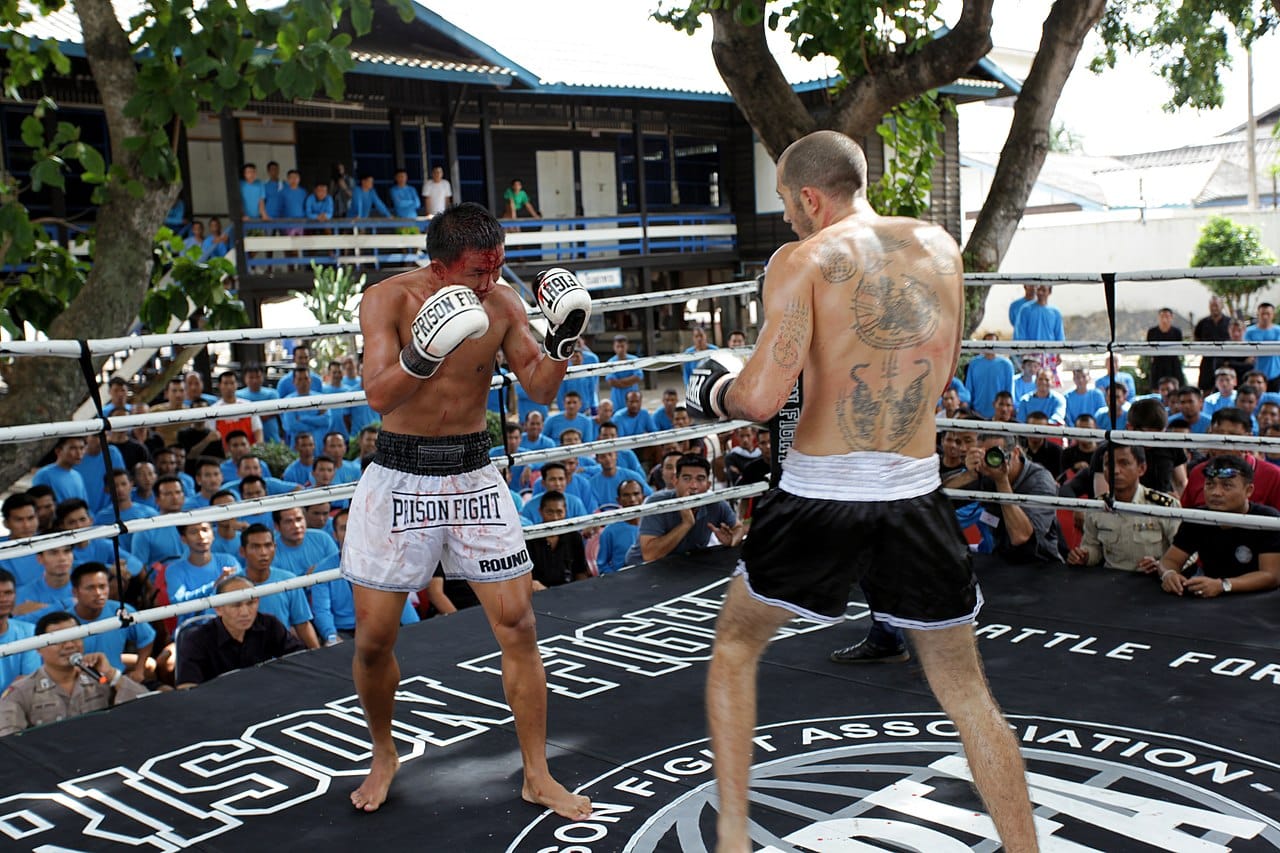The government of Thailand has announced it intends to issue a special visa to foreign tourists who wish to practice Muay Thai in Thailand. It allows them to stay up to 90 days to finish their course.
Pimol Srivikorn, an assistant to the prime minister and head of the government’s subcommittee for pushing sports-related activities, said members agreed at a meeting on Friday to promote Muay Thai as one of the country’s soft strengths.
A tourist visa allows a foreigner to stay in Thailand for up to 60 days, but he said a special visa for learning Muay Thai allows them to stay for 90 days.
He stated that the government would establish a standard level for Muay Thai classes and accreditation for Muay Thai teachers to accurately propagate the national fighting art worldwide.
In addition, the government will promote Muay Thai through the Now Muay Thai (www.nowmuaythai.com) website, which allows foreigners interested in the sport to select classes throughout Thailand.
Raining Muay Thai in Thailand offers an array of benefits that extend beyond perfecting fighting techniques. From cultural immersion to professional instruction and exceptional training facilities, the experience is truly unparalleled.
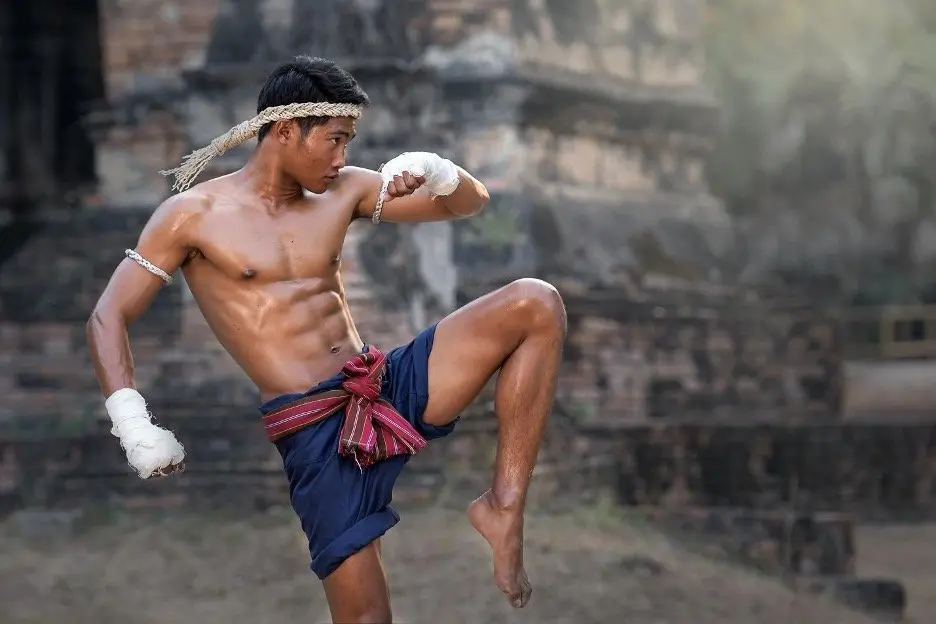
Thailand and Muay Thai
Studying Muay Thai in Thailand provides a unique cultural experience, allowing practitioners to immerse themselves in the tradition and history of this ancient martial art. The training atmosphere is vibrant and infused with the essence of Thai customs, providing an enriching experience beyond physical practice.
The distinctive approach to training in Thailand encompasses more than just physical conditioning – it encapsulates the ethos and values deeply ingrained in the sport’s heritage. It offers a deep connection to the roots of Muay Thai, fostering a deeper understanding and appreciation for its significance in Thai culture.
Related link for additional context: 7 Amazing Benefits You Will End Up Getting When You Train Muay Thai
Professional Instruction
One of the key advantages of training Muay Thai in Thailand is the quality of instruction available. The expertise of the instructors is unparalleled, catering to individuals at all skill levels, from beginners to seasoned practitioners.
The accessibility to knowledgeable trainers ensures that participants receive comprehensive guidance and support throughout their Muay Thai journey. Whether honing foundational techniques or mastering intricate moves, professional guidance in Thailand facilitates exponential growth and skill enhancement.
Related link for further information: Is training in Thailand really that great? : r/MuayThai
Training Facilities
Thailand boasts world-class training facilities meticulously designed to foster optimal skill development. The abundance of resources and conducive environment these facilities offer accelerates the learning process and aids in refining techniques.
The synergy between state-of-the-art equipment and the authentic Muay Thai ambience creates an ideal setting for enthusiasts to advance their abilities. Participants benefit from a holistic approach to training, ensuring a well-rounded and comprehensive skill set.
Check out Muay Thai Training in Thailand – 17 Best Muay Thai Camps for further insight!
Understanding the Muay Thai Visa
If you’re a tourist with a passion for Muay Thai and a desire to immerse yourself in the art and culture of this ancient combat sport, then the Muay Thai visa is a game-changer for your Thailand adventure. This visa, officially known as the non-immigrant education visa (ED visa), is specifically tailored for individuals who wish to train in Muay Thai for an extended period in Thailand.
Purpose of the Muay Thai Visa
The Muay Thai visa serves the specific purpose of enabling visitors to stay in Thailand for an extended period while pursuing training in the art of Muay Thai. Unlike standard tourist visas, the Muay Thai visa allows individuals to partake in a structured and immersive learning experience within certified Muay Thai training camps or schools. This provides unparalleled access to authentic training methods, experienced instructors, and the vibrant Muay Thai community, fostering a deeper understanding and appreciation for the sport.
Benefits for Individuals Interested in Training
The Muay Thai visa offers a unique opportunity for enthusiasts to delve into Muay Thai beyond the confines of a typical vacation. By obtaining this visa, individuals can fully immerse themselves in the art, honing their skills and gaining a comprehensive understanding of the discipline under the guidance of seasoned professionals. This extended stay allows for a more profound cultural exchange, fostering personal growth and skill development in Muay Thai.
Eligibility Requirements
To be eligible for the Muay Thai visa, individuals must meet specific criteria set forth by the Thai authorities. Typically, applicants are required to enrol in a certified Muay Thai training program offered by recognized institutions in Thailand. Furthermore, applicants may need to provide documentation such as a letter of acceptance from the training facility, proof of financial stability, and a clean criminal record. These requirements are in place to ensure that visa holders are genuinely committed to engaging in a meaningful educational experience centred around the art of Muay Thai.
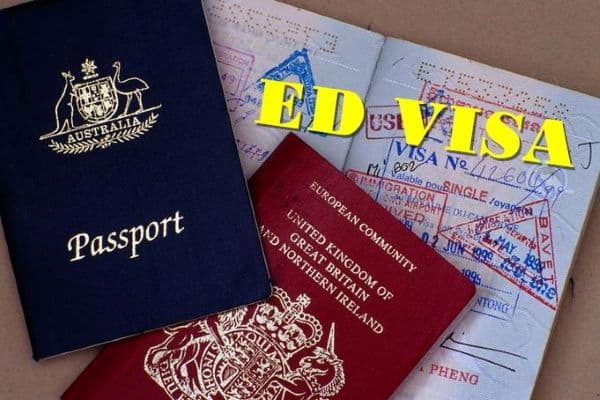
Process for Obtaining a Muay Thai ED Visa
Step 1: Select a Certified Muay Thai Training Program
Begin by researching and selecting a reputable Muay Thai training camp or school in Thailand that offers the ED visa program. Choosing a facility with a track record of providing quality training and assisting with visa applications is essential.
Step 2: Enrollment and Visa Application
Once you’ve chosen a training program, proceed with enrollment and gather the necessary documents for the visa application. This may include a letter of acceptance from the training facility, financial documentation, and a clean criminal record.
Step 3: Submission and Approval
Submit your visa application to your home country’s Thai embassy or consulate. Upon approval, you will receive the Muay Thai visa, allowing you to immerse yourself in the art and practice of Muay Thai in Thailand for an extended period.
Following these steps, you can obtain a Muay Thai visa, unlocking the door to a transformative experience in Muay Thai.
For more information on securing a Muay Thai ED Visa in Chiang Mai, refer to this insightful guide: Your Guide to Securing a Muay Thai ED Visa in Chiang Mai.
For further details on the costs and processes associated with the Muay Thai ED visa, consider the experiences shared on Muay Thai gyms in Bangkok that offer Ed visas.
To understand the requirements and steps in obtaining a Muay Thai non-immigrant education visa, you can explore this insightful resource: How To Get a Muay Thai Non-immigrant Education Visa (ED).
For those considering enrolling in a certified Muay Thai training program and applying for the ED visa, this detailed overview of the Education Visa may provide valuable insights: Education Visa.
Additionally, if you’re interested in obtaining a 1-year Muay Thai ED Visa in Chiang Mai, this resource offers valuable information: Get a 1 Year Muay Thai ED Visa in Chiang Mai 2024.
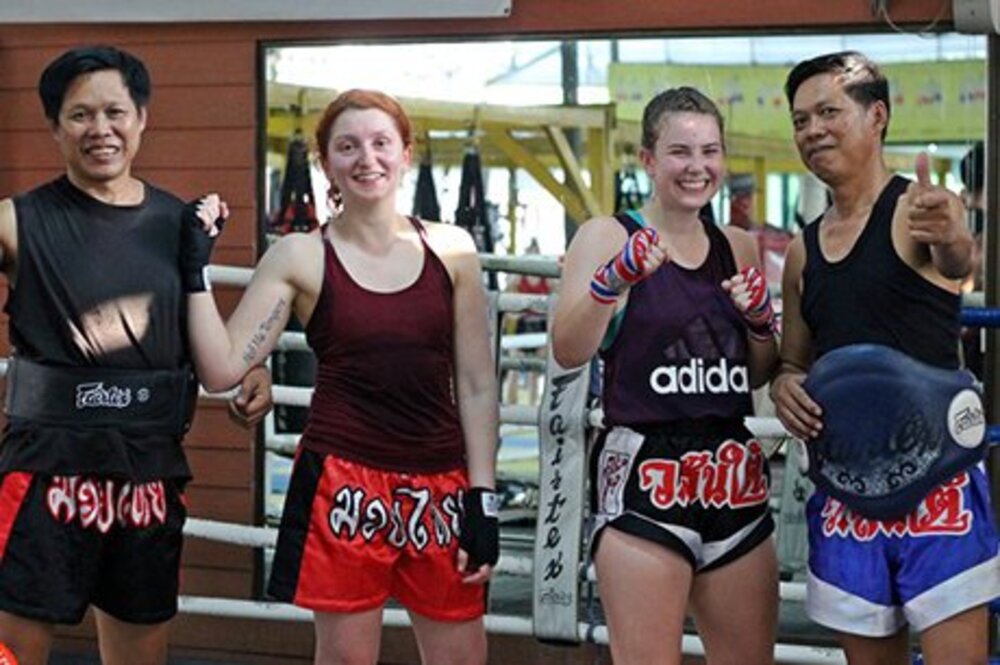
Muay Thai in Chiang Mai
Suppose you’re considering pursuing a Muay Thai ED visa in Chiang Mai. In that case, you’ll find an array of local training opportunities tailored for individuals seeking to immerse themselves in Muay Thai while obtaining a visa for an extended stay in Thailand. Notable gyms and training facilities in Chiang Mai offer specialized programs, allowing participants to engage in authentic training experiences while satisfying the visa requirements.
Local Training Opportunities
Chiang Mai boasts renowned gyms and training centres catering to individuals interested in obtaining a Muay Thai ED visa. Notable options include Chiang Mai locals, which offers a comprehensive program allowing participants to learn Thai boxing while staying in Chiang Mai for durations ranging from six months to two years. Additionally, Chiang Mai Muay Thai Gym has received positive feedback for its reliability in assisting individuals with the ED visa for Muay Thai.
Application Procedure
Obtaining a Muay Thai ED visa in Chiang Mai involves a specific application procedure tailored to the region. It’s essential to familiarize yourself with the documentation and local regulations that may differ from other regions in Thailand. For detailed information on the application process and requirements, including the duration of stay and program specifics, it’s advisable to consult reputable sources such as Chiang Mai Buddy and CM Locals, which provide insight into the unique aspects of the application process for the Muay Thai ED visa in Chiang Mai.
By exploring the distinctive training opportunities and application process specifically tailored to Chiang Mai, individuals seeking to pursue a Muay Thai ED visa can gain a comprehensive understanding of the local requirements and exceptional training options available in this vibrant city.
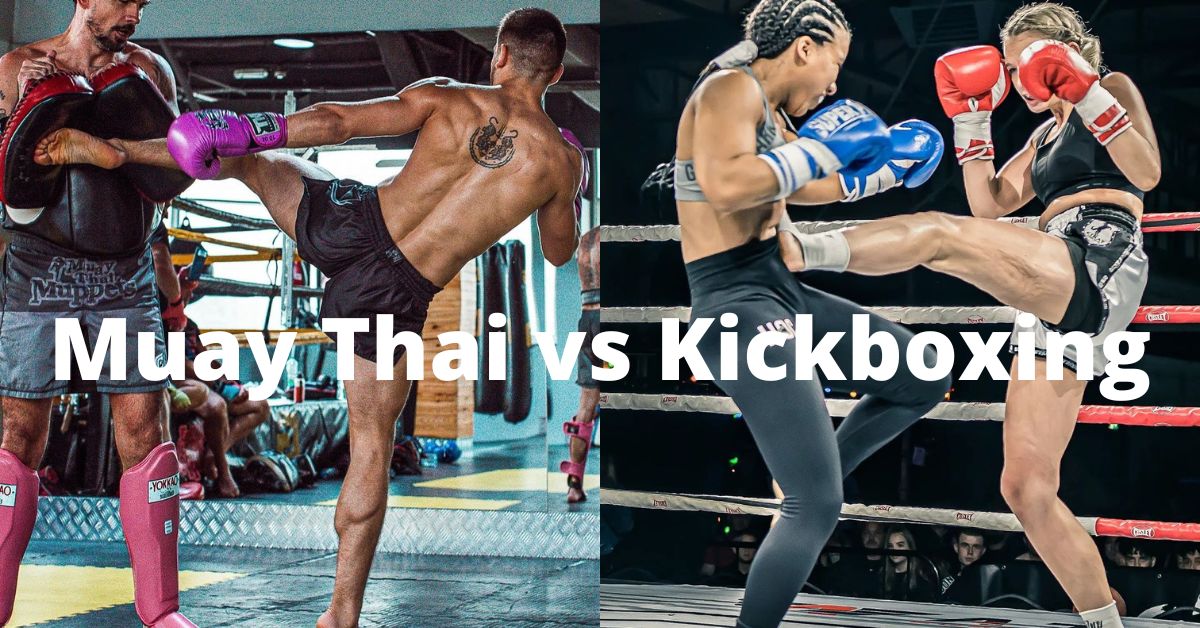
Muay Thai vs. Kickboxing
Regarding martial arts, Muay Thai and kickboxing are often compared due to their similarities in some techniques but significant differences in others. Let’s delve into the distinct characteristics of each and understand how they stand apart.
Techniques and Style
Muay Thai, known as the “Art of Eight Limbs,” emphasizes fists, elbows, knees, and shins. Its diverse techniques include clinching, striking, and powerful kicks, driven by utilizing the entire body as a weapon. In contrast, kickboxing primarily involves punches and kicks, focusing on agility, quick movements, and striking with precision.
While Muay Thai encourages using all limbs, kickboxing focuses more on swift footwork and strong, precise hand and foot strikes. The cultural and historical aspects of martial arts contribute to their unique techniques and styles, making them distinct in their approach and execution.
Rules and Regulations
In Muay Thai, fighters can use their elbows, knees, and clinching techniques, resulting in a more varied and dynamic fighting style. On the other hand, kickboxing typically follows stricter regulations, often prohibiting using elbows and clinching, leading to a more refined and limited set of techniques.
The differences in rules and regulations between Muay Thai and kickboxing significantly impact training and participation. Fighters and trainers must adapt their strategies and conditioning based on the specific guidelines of each discipline, influencing their approach to matches and overall training methods.
As tourists exploring the world of martial arts, understanding the unique characteristics of Muay Thai and kickboxing can help them appreciate each art form’s cultural significance and historical roots. With these insights, enthusiasts can decide which discipline aligns more closely with their interests and aspirations.
Conclusion
In conclusion, the allure of Muay Thai training in Thailand lies in its unique blend of physical and cultural experiences. The benefits of the Muay Thai visa, such as the opportunity for an extended stay while studying this traditional martial art, make it an attractive option for tourists seeking cultural immersion and physical development.
With Thailand’s rich history and vibrant atmosphere, exploring Muay Thai training enhances one’s physical fitness and connects deeply to Thai culture. Embrace the chance to embark on this remarkable journey, delving into the world of Muay Thai while discovering the beauty of Thailand.


